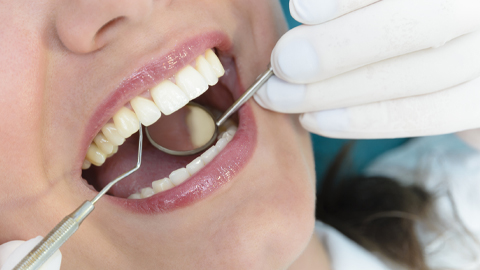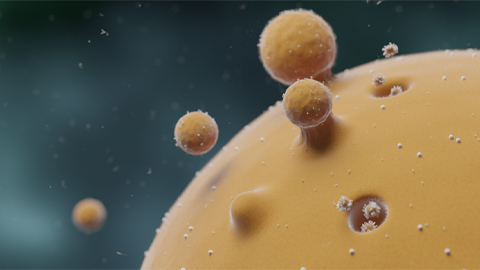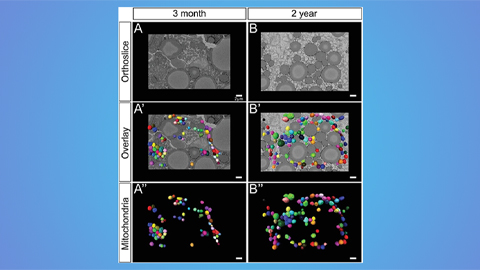Study suggests statins could help fight gum disease
Could taking statins benefit your mouth in addition to your arteries? A new study conducted in cell cultures showed that cholesterol-lowering drugs help to dampen the inflammation associated with periodontal disease by altering the behavior of macrophages, a type of immune cell.
Statins are the most common type of prescription medication in the United States today, taken by over 40 million Americans to lower cholesterol. The study suggests these drugs improve gum health and reduce the risk of heart disease.

Subramanya Pandruvada, an assistant professor in the College of Dental Medicine at the Medical University of South Carolina, oversaw the work.
“During our study, we replicated specific conditions in periodontal disease and demonstrated that introducing statins to our in vitro model modifies macrophage response,” Pandruvada said. “This allowed us to explore how medication like statins can help us treat inflammatory conditions such as periodontal disease.”
Pandruvada will present the new research at Discover BMB, the annual meeting of the American Society for Biochemistry and Molecular Biology, which is being held March 23–26 in San Antonio. The study’s lead authors are Waleed Alkakhan, a graduate dental resident in periodontology, and Nico Farrar, a dental student at the Medical University of South Carolina.
Periodontal disease occurs when the growth of bacteria in the gums causes the immune system to mount an inflammatory response, contributing to symptoms such as swelling, bleeding and bone degradation. Untreated, it can lead to tooth loss. Nearly half of adults over age 30 have some form of periodontal disease, according to the U.S. Centers for Disease Control and Prevention.
Current treatments for advanced periodontal disease include antibiotics, deep cleanings of tooth and root surfaces, and various surgical procedures. Researchers have sought new ways to calm gum disease through less invasive treatment strategies.
Some previous studies have shown that people taking statins tend to show fewer signs of periodontitis than people who do not take statins. The new study is the first to trace the biochemical pathways through which statins appear to reduce periodontal inflammation.
“Recent periodontal literature has shown the beneficial effects of statins when used with traditional periodontal therapy,” Pandruvada said. “However, our study highlights a novel approach in which statins affect macrophages specifically, which, through this mechanism, can help treat periodontal disease.”
Macrophages play an important role in helping the body fight infections; however, they can also worsen inflammation depending on the form they take at different phases of the immune response. The researchers grew macrophages and gum cells together for the study and exposed them to various conditions. They found that exposure to simvastatin, a common statin drug, suppressed the macrophage inflammatory response.
As a next step, the researchers plan to study the impacts of statins on periodontal disease in animal models, a step toward determining whether this strategy might be a safe and effective approach for future periodontal therapies.
The new findings build upon the group’s initial results, which were published last year in the journal Cells.
Subramanya Pandruvada will present this research from 4:30 to 6:30 p.m. CDT on Monday, March 25, in the exhibit hall of the Henry B. González Convention Center (Poster Board No. 148) (abstract).
Enjoy reading ASBMB Today?
Become a member to receive the print edition monthly and the digital edition weekly.
Learn moreGet the latest from ASBMB Today
Enter your email address, and we’ll send you a weekly email with recent articles, interviews and more.
Latest in Science
Science highlights or most popular articles

Scientists identify new function of learning and memory gene common to all mammalian brain cells
Findings in mice may steer search for therapies to treat brain developmental disorders in children with SYNGAP1 gene mutations.

From the journals: JBC
Biased agonism of an immune receptor. A profile of missense mutations. Cartilage affects tissue aging. Read about these recent papers.

Cows offer clues to treat human infertility
Decoding the bovine reproductive cycle may help increase the success of human IVF treatments.

Immune cells can adapt to invading pathogens
A team of bioengineers studies how T cells decide whether to fight now or prepare for the next battle.

Hinton lab maps structure of mitochondria at different life stages
An international team determines the differences in the 3D morphology of mitochondria and cristae, their inner membrane folds, in brown adipose tissue.

National Academies propose initiative to sequence all RNA molecules
Unlocking the epitranscriptome could transform health, medicine, agriculture, energy and national security.

